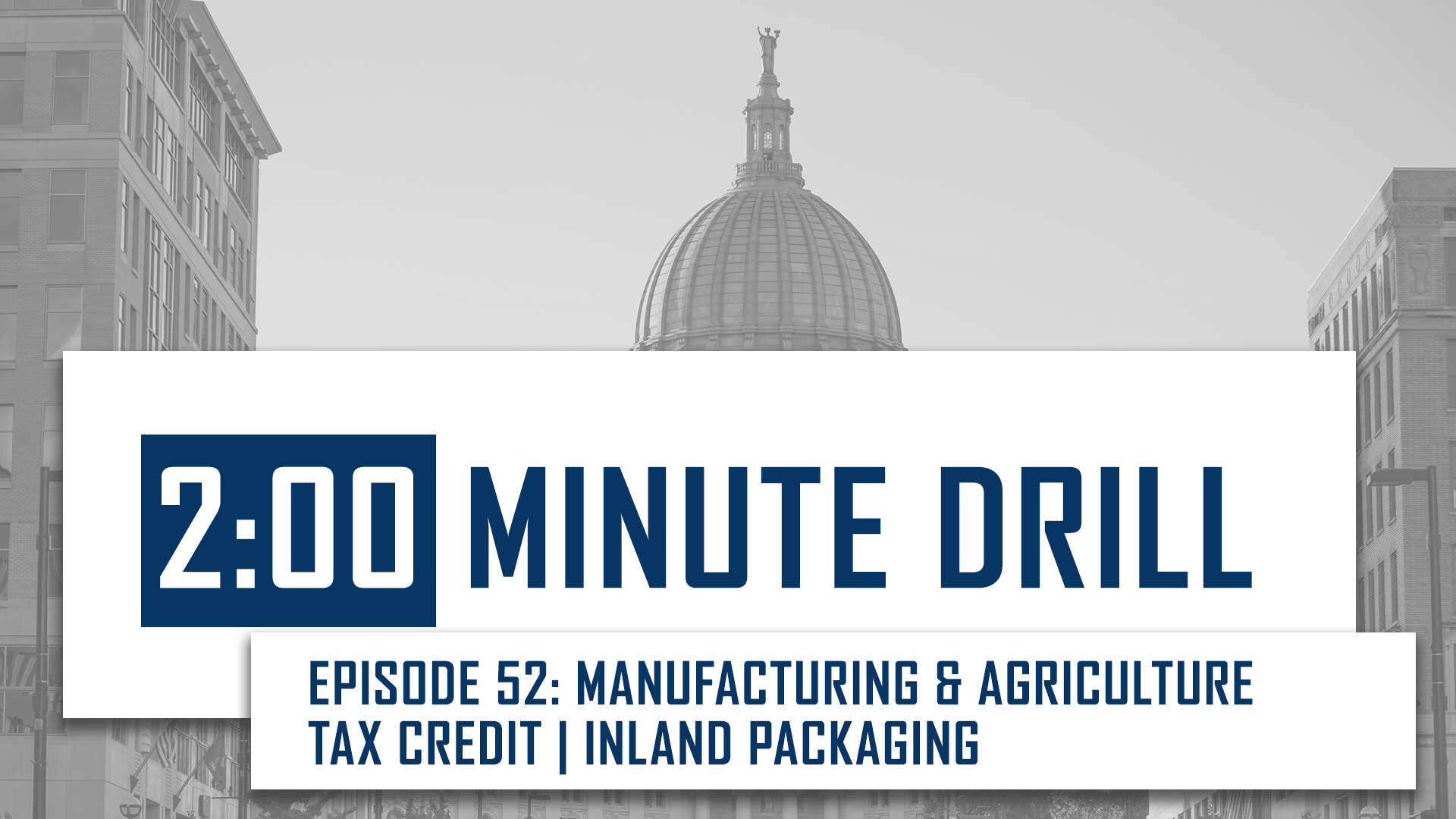MADISON – Wisconsin Manufacturers & Commerce (WMC) – the combined state chamber, manufacturers’ association and safety council – submitted comments to the Wisconsin Department of Natural Resources (DNR) on Monday outlining the agency’s lack of statutory authority to impose certain restrictions on high capacity well permit applications.
WMC’s comments follow DNR’s irregular decision in late April to request a formal opinion from Attorney General Josh Kaul in a matter that is currently being litigated before the Wisconsin Supreme Court. In his response on May 1, Attorney General Kaul rescinded an opinion written by former Attorney General Brad Schimel that rightly stated agencies need explicit – not implied – statutory authority to place conditions on high capacity well permit holders because of 2011 Act 21.
Based on Attorney General Kaul’s letter, DNR has produced a guidance document in the form of the “High Capacity Well Application Review Process Website” that surpasses its regulatory authority and circumvents the state’s rulemaking process.
“Not only did Attorney General Kaul act unethically by tacitly issuing an opinion while this matter is before the state’s highest court, now DNR is hastily forcing farmers, food producers and other employers to follow burdensome regulations that are far outside the scope of its authority,” said Scott Manley, WMC Executive Vice President of Government Relations.
In its comments, WMC explains that DNR must have explicit authority to enact regulations. In part, WMC’s comments read:
“In between the May 1 letter and the issuance of the Guidance Document, the Wisconsin Supreme Court handed down its decision in a relevant case, Legislature v. Palm upholding the validity of Act 21, which greatly constrains DNR’s ability to expand its regulatory authority beyond the plain language of the statutes.
“This decision recognized that the Wisconsin Legislature eliminated the judicial doctrine of ‘express and implied’ authority that agencies previously used to imply legal authority to regulate outside the language of the statutes. It is now crystal clear that rules can only be promulgated by the agency if the agency has explicit authority to do so.”
The comments also explain that DNR’s Guidance Document is actually a rule and the Department did not follow proper rulemaking processes.
“Rulemaking is vital in promoting fairness by providing notice, consistency, and opportunity to comment. The rulemaking process gives the regulated community the opportunity to engage with potential regulations and express concerns before it binds them. Rulemaking also provides necessary legislative and gubernatorial oversight. So, even assuming the Supreme Court concludes DNR has broad authorities and discretion in implementing its high capacity well permit program, to do so on the permit-by-permit basis rather than rulemaking would be inconsistent with the fundamental principles behind Wisconsin’s Administrative Procedures Act. It would violate Chapter 227.”
In addition to submitting formal comments to DNR, WMC released a video two weeks ago on the topic and raised concerns earlier this month in a news release calling on DNR to follow the law.
“In a time when farmers and food producers are struggling, our government should not be making it harder to do business,” concluded Manley. “DNR needs to respect the rule of law and work with the regulated community when it looks to make changes that can impact livelihoods.”
WMC’s full comments can be read by clicking here.





